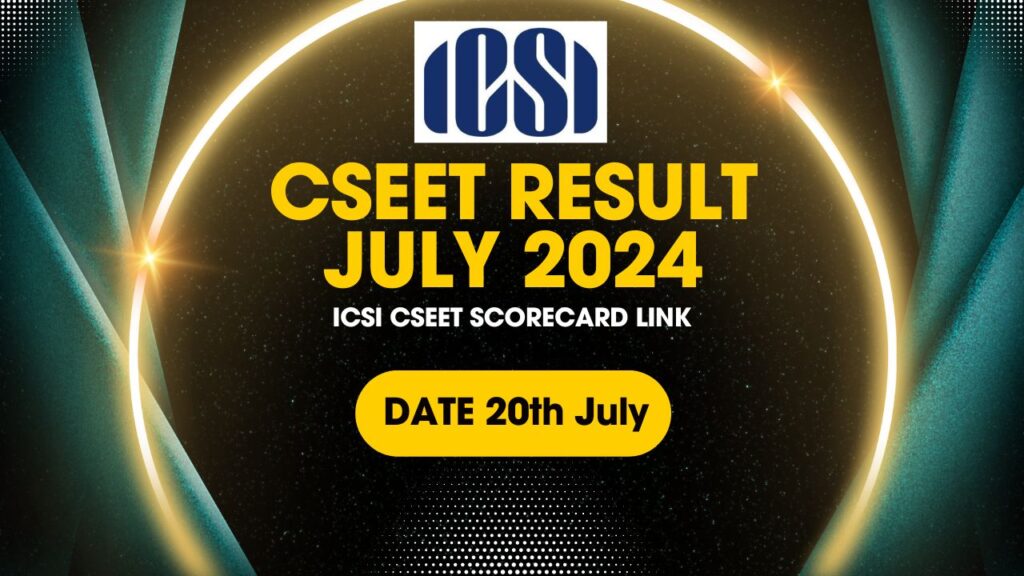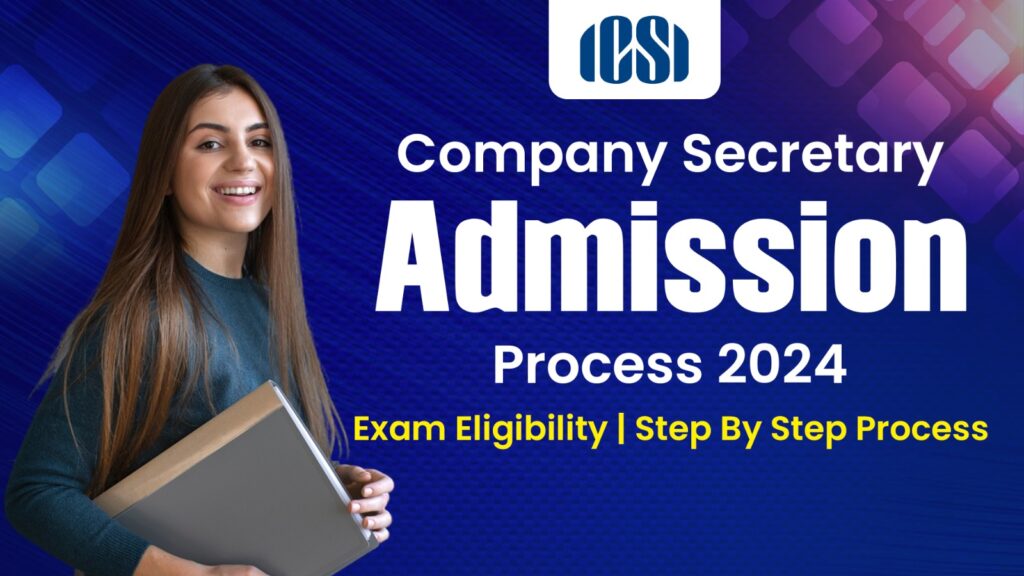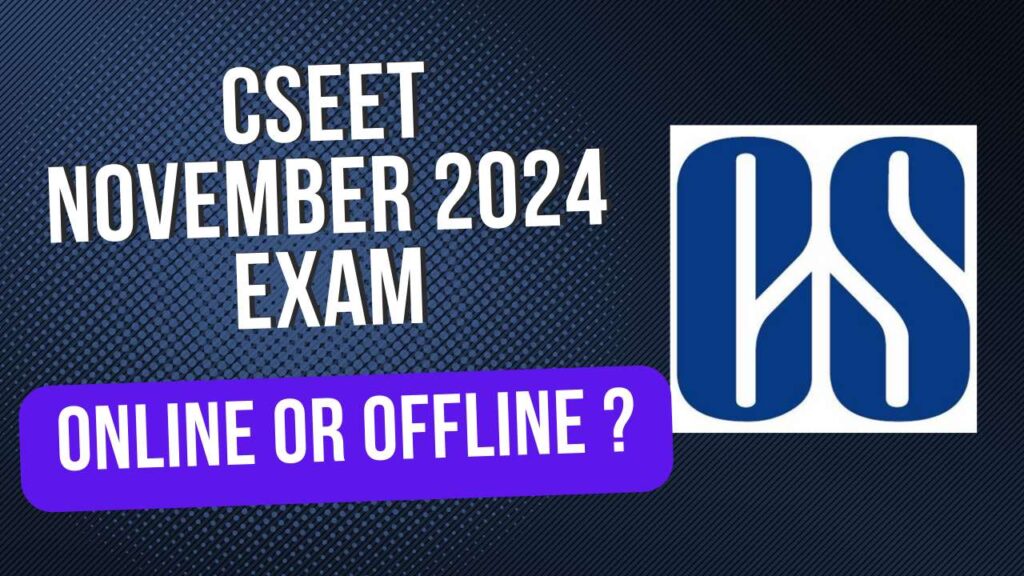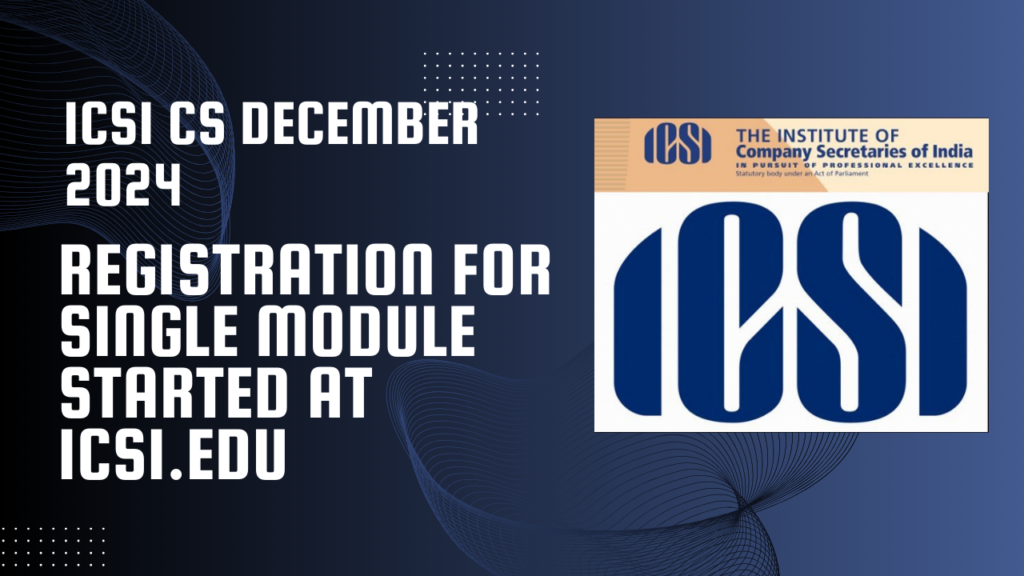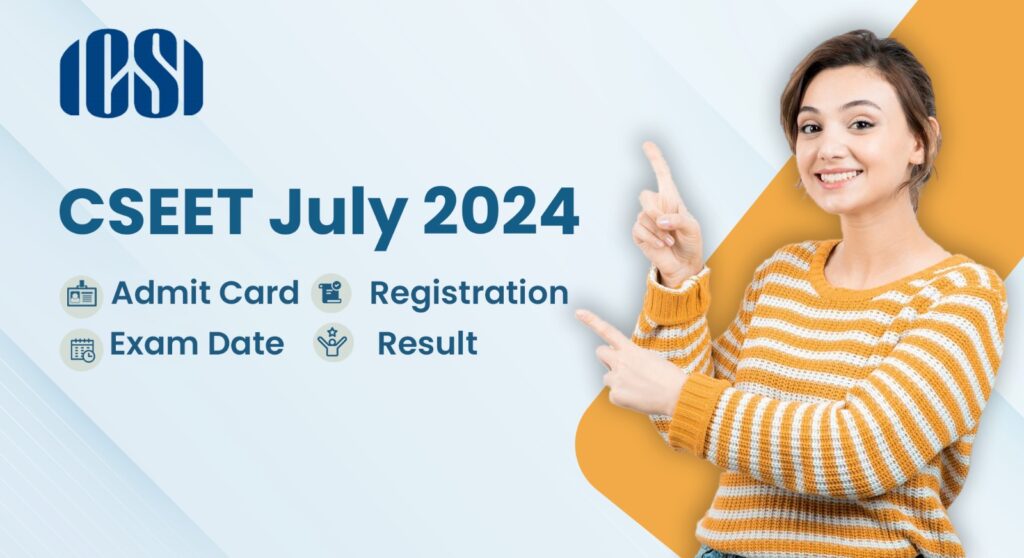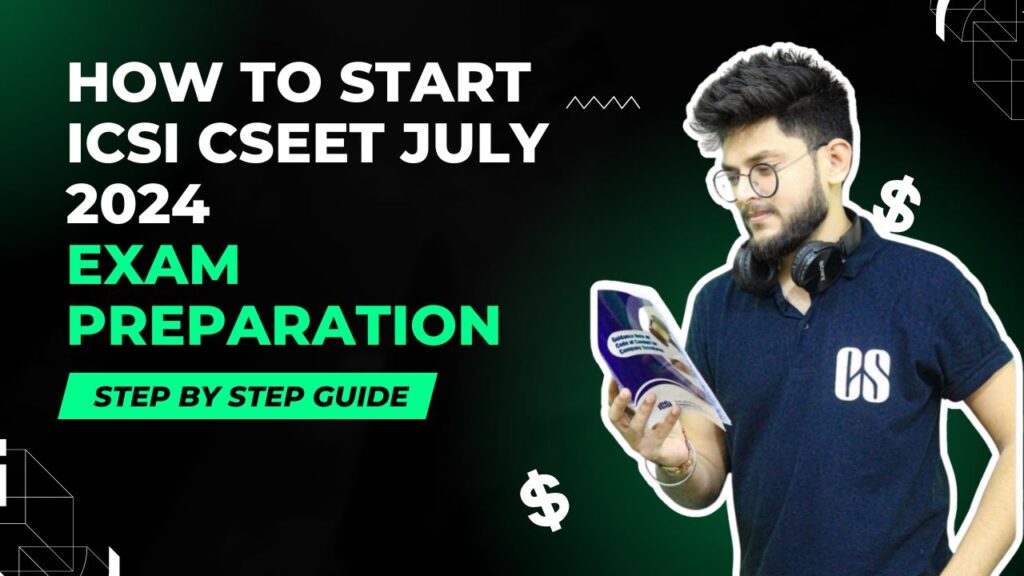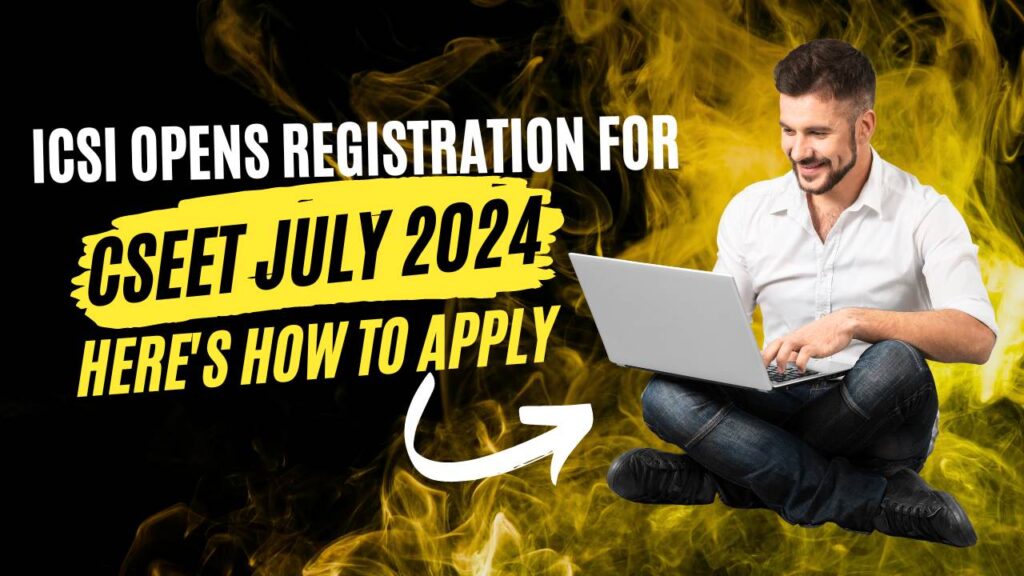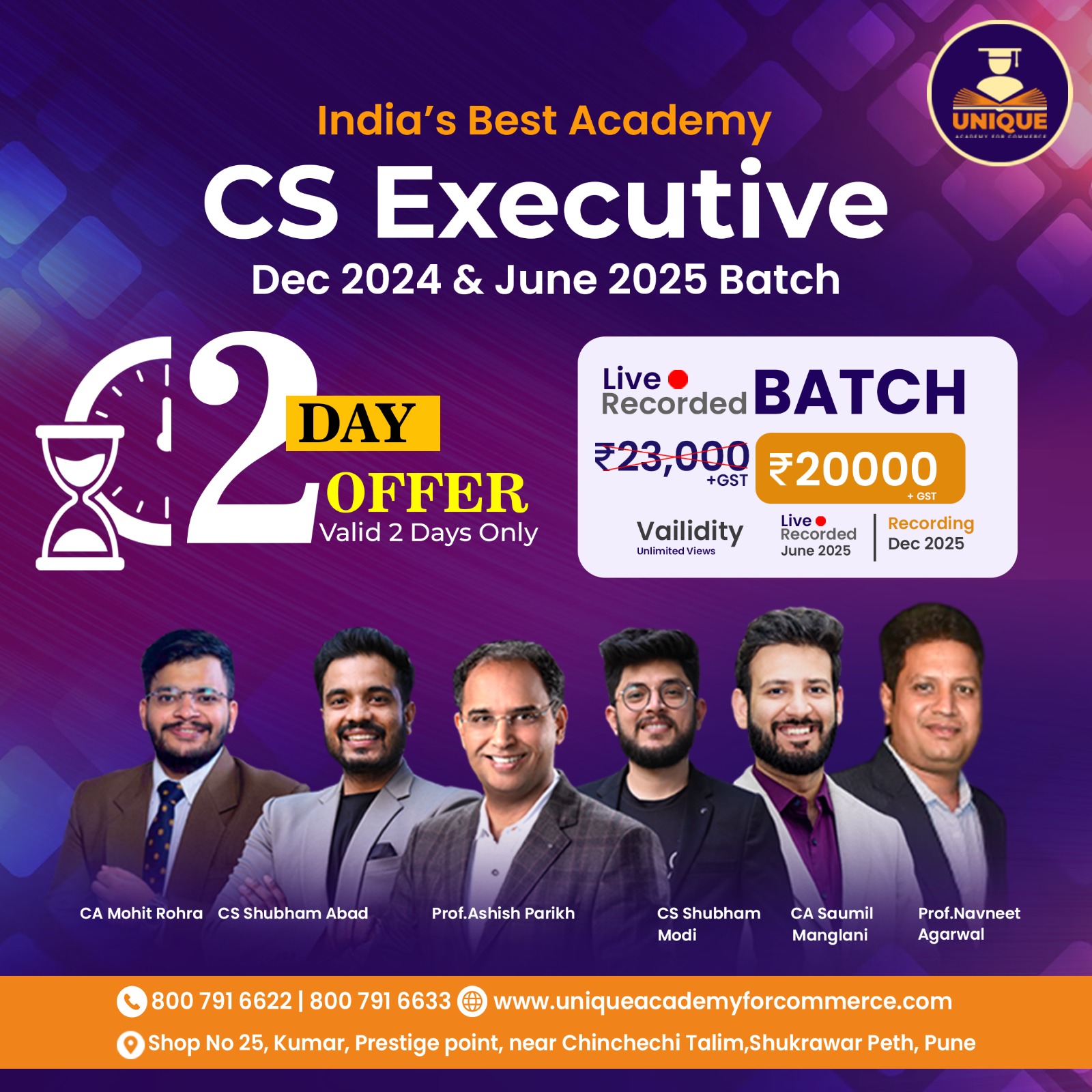What is CSEET?
“ICSI CSEET is the qualifying entrance test for registration to the CS Executive Programme” conducted by the Institute of Company Secretaries of India. This test is conducted 4 times in a year, mostly in the months of January, May, July & November.
It’s a national level examination. The language of the examination is English and the purpose of conducting this exam is to train and certify the candidates who aspire to become Company Secretaries.
- What is CSEET?
- After going through this blog, you will be able to get answers to all your queries such as
- Earlier Notification
- Eligibility Criteria
- But there are some exemptions for appearing in CSEET
- Important dates
- Some important Updates for preparing CSEET
- CSEET 2022 fees schedule- Category wise
- Modes of appearing in Test
- What is REMOTE Proctored Mode?
- What are the essentials to be ensured for this mode of examination?
- Change in the format of CSEET Exam
- Syllabus
- Paper wise Important Topics and Coverage
- Books which can be referred
- Passing Criteria
- But are we really prepared to crack this exam?
- Following methodology is suggested for achieving the passing criteria and cracking the exam
After going through this blog, you will be able to get answers to all your queries such as
- CSEET July 2022 exam date
- how many times cseet exam held in a year
- cseet exam date 2022
- cseet registration dates
- cseet exam date 2022 after july
- In which month is Cseet conducted?
- How is Cseet exam conducted?
- When should I take Cseet exam?
- When CSEET exam will be held 2022?
- CSEET Exam Dates May & July 2022 (Out) – Application Date, Admit Card Date, Result Date
- cseeet exam counducted
- how cseet exam conducted online
- cseet exam procedure
- When CSEET exam will be held?
- When CSEET exam will be held 2022?
Earlier Notification
Considering the ongoing Pandemic, the mode of conduct of the entrance test was changed from test centres to Remote/ Online Mode. The CSEET was conducted through REMOTE Proctored Mode instead of conducting through test centres.
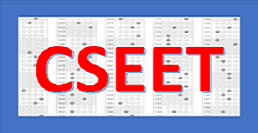
Eligibility Criteria
A candidate should check the eligibility criteria before applying for CSEET. For being eligible, the candidate needs to meet the minimum criteria of qualification laid down by the Institute of Company Secretaries of India.
- A candidate passed / appearing in the Senior Secondary (10+2) Examination or equivalent thereto is eligible to appear in the CSEET.
- All Graduates/ Post Graduates who were hitherto eligible for registration directly to CS Executive Programme, are also required to pass the CSEET to become eligible for registration to Executive Programme.
- Candidates of Indian Nationality can only apply for this test and candidates from foreign nationality are not eligible for the same.
- Candidate below the age of 17 years is also not eligible for appearing in the test.
But there are some exemptions for appearing in CSEET
- Candidates who have passed CS Foundation Programme are exempted from CSEET without any payment of exemption fee.
- Candidates who have passed the Final Examination of The Institute of Chartered Accountants of India (ICAI) and/or The Institute of Cost Accountants of India (ICMAI) are exempted from CSEET
Important dates
The July session CSEET will be conducted on 09th July 2022.
The admit card for CSEET 2022 July session will be available on the official website in online mode. Candidates can download the admit card by entering their registration number and date of birth.
| Dates | July 2022 session | November 2022 session |
| Registration start date | April 18, 2022 | June 16, 2022 |
| Registration last date | June 15, 2022 | October 15, 2022 |
| Admit Card | To be announced | To be announced |
| Mock Test | To be announced | To be announced |
| Exam Dates | July 9, 2022 | To be announced |
| Result date | To be announced | To be announced |
Some important Updates for preparing CSEET
- ICSI-Hyderabad Chapter is starting Online (Live) CSEET Classroom Teaching (Coaching) July, 2022 attempt. After payment click below link for registration/media/portals/0/new.gif
- 15th Batch Online Classes for CSEET from 31st May 2022 for July 2022 Examination by ICSI-SIRC/media/portals/0/new.gif
- 9th Batch Online Classes for CSEET for July-2022 Examination by ICSI-WIRC from 23rd of May-2022/media/portals/0/new.gif
- Join CSEET Classes for July – 2022 attempt by Ahmedabad Chapter of ICSI
CSEET 2022 fees schedule- Category wise
| Category | Payable fee | Concession % |
| SC/ST | Rs 500/- | 50% |
| Physically Handicapped | Rs 500/- | 50% |
| Serving / Retired Personnel of Defence Services andParamilitary Forces | Rs 500/- | 50% |
| Students from the North Eastern States, Andaman &Nicobar Islands, Lakshadweep & Himachal Pradesh | Rs 500/- | 50% |
| ICSI Staff and Wards / Spouse of ICSI Staff | Rs 250/- | 75% |
| General/OBC | Rs 1000/- | 0% |
| Wards and Widows of Martyrs and Defence ServicePersonnel with Permanent Disability | Nil | 100% |
| ICLS Officers/ Officers & Staff of MCA and affiliatedoffices (NCLT, SFIO and CCI) | Nil | 100% |
| Students from the Union Territories of Jammu &Kashmir and Ladakh | Nil | 100% |
Modes of appearing in Test
Candidates are allowed to appear for the test through their own laptop/ desktop from home/such other convenient place. Candidates shall not be allowed to appear through smart phone (mobile)/tablet etc.
What is REMOTE Proctored Mode?
This type of mode of examination means writing the exam in a remote area/ location. The integrity of the exam has to be ensured. All the prerequisites of the normal mode of exam has to be maintained in parallel.

Also this mode facilitates the monitoring of students sitting at a remote location. This means that they can be monitored through video mode also.
What are the essentials to be ensured for this mode of examination?
- Students can use their own laptop/ computers for appearing in this exam
- Students can decide their location for appearing in this test
- Students are not allowed to use smart phones for appearing in this test
- Uninterrupted power supplies are to be arranged by the students themselves
- Ensuring continuous internet connectivity will also be the responsibility of the students
Before reading further check out these posts:
Change in the format of CSEET Exam
Prior to this notification the CSEET was to be conducted including following-
- Computer based test of 120 minutes consisting of various questions
- Viva Voce of 15 mins on Presentation and Communication Skills
But in this notification, the requirement of Viva Voce has been done away with.
The new break up for computer based CSEET in MCQ pattern of 140 minutes would be as under
| Subject | Questions | 1 marks + 2 marks ques | Total marks |
| Business Communication | 35 | 20 + 15 | 50 |
| Legal Aptitude and Logical Reasoning | 35 | 20 + 15 | 50 |
| Economic and Business Environment | 35 | 20 + 15 | 50 |
| Current Affairs | 35 | 20 + 15 | 50 |
| Total | 140 | 200 |
Syllabus
| Business Communication | Essentials of Good EnglishCommunicationBusiness Correspondence |
| Legal Aptitude and Logical Reasoning | Constitution of IndiaIndian Contract Act & Law of TortsElements of Company Secretaries LegislationElements of Company lawLogical ReasoningVerbal ReasoningNon verbal Reasoning |
| Economic and Business Environment | Basics of Demand and SupplyForms of Market CompetitionNational Income Accounting and related conceptsIndian Union BudgetIndian Financial MarketsIndian EconomyIndian EconomyBusiness EnvironmentKey Government Institutions |
| Current Affairs and Presentation and Communication Skills | Current Affairs of National and International SignificancePresentation skillsWritten Communication SkillsOral Communication Skills |
Paper wise Important Topics and Coverage
| Paper | Topic | Important Parts to be Covered |
| Business Communication | Essentials of Good English | English Grammar and its usage-Noun, Pronouns, Verbs, Adjectives, Adverbs, Prepositions, Conjunctions, Interjection, Voice, Articles, Tenses, Prefix and Suffix, Punctuations etc.Enriching Vocabulary-Choice of words, Synonyms and Antonyms• Common errors in English• Words with multiple meaning• One word substitution• Words frequently mis-spelt• Homophones• Idioms and phrases• Proverbs• Abbreviations• Para jumbles• Sentence completion• Sentence arrangement• Sentence correction• Foreign words and phrases commonly used• Comprehension of passage and art of Summarizing |
| Communication | Concept of Communication, Meaning and Significance ofGood CommunicationBusiness Communication- Principles and ProcessMeans of Communication- Written, Oral, Visual, AudiovisualChoice of Modes of CommunicationCommunication Networks- Vertical, Circuit, Chain, Wheel, StarCommonly used Mediums of Digital Communication- Email,SMS, Voice mail, Multimedia, Teleconferencing, MobilePhone Conversation, Video Conferencing etc.Listening Skills-Types, Purpose, Steps to EffectiveListening, Barriers to Effective Listening and Ways to overcome the BarriersBarriers to Effective Communication and Ways to overcome the Barriers | |
| Business Correspondence | Business Letters – Its Essentials, Parts, Types, SalutationsPositive Messages, Negative Messages and PersuasiveMessagesBusiness Reports, Inter and Intra-departmentalCommunication- Office Orders, Office Circulars,Memorandum, Office Notes, Management InformationSystem (MIS)Concept of Web, Internet and E-correspondenceIntranet- Benefit and PurposeEmail – Features, Procedure to Write a Formal Email, EmailEtiquettesEssential Elements of Email- Subject line, Formal Greeting,Target Audience (Reader), Clarity and Conciseness, FormalClosing, Proof reading, FeedbackAdvantages and Disadvantages of Email | |
| Common Business Terminologies | Terms defined under various Laws, Rules and Regulations including Financial and Non-Financial terms and expressions. | |
| Legal Aptitude and Logical Reasoning | Indian Constitution | Preamble• Citizenship• Fundamental Rights and Fundamental Duties• Directive Principles of State Policy• State under Constitution• President and GovernorsCouncil of Ministers and Prime Minister•Lok Sabha, Rajya Sabha and Legislative Assembly,Legislative Council• Supreme Court and High Courts• Landmark Amendment in Constitution• List of subjects-Centre, State and Concurrent |
| Elements of General Laws (Indian Contract Act and Law of Torts) | Law of ContractLaw of TortsOffer, Acceptance, Consideration andCompetency to Contract.AgreementTypes of Contract: Void, Voidable, UnenforceablePerformance of ContractFrustration of ContractQuasi ContractBreach of Contract and RemediesBasics of TortsSpecific DefensesNuisance and NegligenceStrict, Absolute and Vicarious LiabilityTrespassMalicious Prosecution | |
| Elements of Company Secretaries Legislation | Meaning and Nature of Company• Types of Companies• Incorporation of a Company• Types of capital• Board of Directors -(Concept, Appointment andRemoval of Directors)• Board Meetings & Shareholders MeetingsCorporate Social Responsibility• Business Ethics• Ethical Dilemma | |
| Legal Reasoning | Legal Fundamentals and Terms• Legal Problems – Reading and understanding a case• Legal Terminology and Maxims• Legal Reasoning-(a) Reasoning by Analogy(b) Inductive and Deductive Reasoning• Questions of Fact (or factual issues)• Questions of Law (or legal issues)• Landmark Judgments of Supreme Court and High Court• Reading Comprehension | |
| Logical Reasoning | Calendars• Cause and Effect Reasoning• Clocks• Coding and Decoding• Deriving Conclusion from Passages• Drawing Inference• Number Test• Sequence and Series• Statement and Assumptions | |
| Verbal Reasoning | Alphabet Test• Alpha Numeric Sequence Puzzle• Analogy• Assertion and Reason• Blood Relations• Decision Making• Inserting Missing Characters• Logical Sequence Test• Logical Venn Diagram• Number, Ranking and Time Sequence Test• Syllogism• Truth Tellers and Liars | |
| Non-Verbal Reasoning | Analytical Reasoning• Classification• Completion of Incomplete Pattern• Figure Matrix• Grouping of Identical Figures• Mirror Image• Rule Detection• Numeric and Alphabet Series | |
| Economic and Business Environment | Basics of Demand and Supply and Forms of Market Competition | Theory of Demand and SupplyEquilibrium PriceElasticity of Demand and Supply and other relatedconceptsIncrease and Decrease in Demand and Expansionand Contraction of DemandForms of Market Competition- Monopoly, Duopoly,Oligopoly, Perfect Competition and MonopolisticCompetition |
| National Income Accounting and Related Concepts | Meaning and methods to compute National Income• Key variables of National Income (GNP, GDP, NNP,NDP etc.) | |
| Indian Union Budget | Key terminologies / heads covered under the budgetRevenue and Capital BudgetMajor components of Revenue and Capital BudgetMeaning of Fiscal DeficitComponents/ Variables covered under Fiscal Deficit | |
| Indian Financial Markets | Overview of Indian Financial EcosystemKey facets of Indian financial systemGrowth of Financial InstitutionsPublic and private sector banksIndustrial Finance Corporation of India, SmallIndustries Development Bank of IndiaRegional Rural BanksCooperative BanksNon-Banking Finance CompaniesBasics of Capital Market: Types of Shares andDebenturesFinancial assistance scenario for Small and MediumEnterprises and Start-Ups. | |
| Indian Economy | Primary (Agriculture and allied activities)Secondary (Manufacturing)Tertiary (Services):Current scenario of agriculture and allied activities in IndiaAgricultural and Industrial Policies of IndiaCurrent scenario of services sector in IndiaBalance of PaymentsComponents of Balance of PaymentsFavorable and Unfavorable Balance of TradeForeign Investments in India- Types and Flows | |
| Entrepreneurship Scenario | Government initiatives to foster entrepreneurshipNeed for entrepreneurship in IndiaBottlenecks in entrepreneurial growth | |
| Business Environment | Overview of Business EnvironmentFeatures and factors influencing business environmentTypes of environment: Economic environment,Socio-cultural environment, Political environment,Legal and Technological environmentEase of Doing Business Index by World Bank forIndia and Department for Promotion of Industry andInternal Trade (DPIIT) for States | |
| Key Government Institutions | Basic awareness about various institutions and regulatory bodies in India such as NITI Aayog, MCA, SEBI, RBI, IBBI, CCI, NCLT/NCLAT etc | |
| Current Affairs and Presentation and Communication Skills | Current Affairs | Current affairs of national and internationalimportance relating to:• International bodies (ASEAN, BRICS, SAARC, G-20,BIMSTEC, etc.)• Organizations like, RBI, NABARD, CCI, IBBI, IMF,OECD, ADB, World Bank, etc.• Summits and conferences• Current development in Banking and Finance(digital banking, govt. initiatives, financialinclusion, etc.)• Current development in stock markets• Recent important judgments passed by SupremeCourt and High Courts of India, Tribunals• Current affairs related to CS Institute/Professionand regulatory bodies• Current updates on environment, bio-diversity,climate change and sustainable development• Latest developments in science and technology,IT, Computers and Space science• Business personalities and leaders• Committees and appointments• Art and culture• Books and their authors• Awards and honours• Sports• Current political scenario• Initiatives/ schemes of the government• Language and national symbolsGovernance and ethics• International diplomacy |
| Listening Skills | Questions based on audio clips– Monologue– Dialogue• Grammar Test• Vocabulary Test | |
| Written Communication Skills | Writing on a given topic• Correcting a given paragraph• Short Note writing• Essay writing• Precis writing | |
| Oral Communication Skills | Candidates are expected to:– Answer a question– Speak on a given topic– Explain the given term |
Books which can be referred
Considering this exam to be highly competitive and on national level, every student must prepare to qualify the same. ICSI has not exclusively recommended any of the reference books for preparing the examination and scoring excellent marks subject wise. Although this is not an exhaustive list but students can definitely score good marks by referring these study books.
For instance
- For preparing the questions w.r.t Company Law, students can refer books from Taxmann publishers
- Even they can also find really good Multiple Choice Questions on Company Law from this publisher
- The conceptual understanding regarding Business Communication can be made from the ICSI study material only
- For understanding Business and Commercial laws, students can refer books of CS Anoop Jain
- For updating the knowledge w.r.t. current affairs, any periodicals, newspapers or journals can serve the purpose
Although students can also refer some of the previous year question papers for preparing well in the exam and consequently they can also prepare along with the speed and meeting the timeline requirement of clearing the exam.
Passing Criteria
Candidates are required to secure a minimum of 40% marks in each part, i.e., Paper- 1, Paper -2, Paper -3 and Paper -4 separately as the case may be, and 50% marks in aggregate of all parts put together for passing the Test . There will be no negative marking for wrong answers. The minimum CS Executive Entrance Test percentage to be scored is 50%.
But are we really prepared to crack this exam?
This exam being one of the most important exam for entering into this course of such a prestigious Institute of India. Hence this requires adequate preparation, learning and planning. The students are required to plan the study in such a manner that the goal can be achieved and they should be able to crack this in 1st attempt itself.
Following methodology is suggested for achieving the passing criteria and cracking the exam
- Understanding the CSEET Syllabus
- Making a Study Plan
- Journals and CSEET Bulleteins released by ICSI
- Books
- Attending Classes
- Giving Mock Tests periodically
- Self Practice





